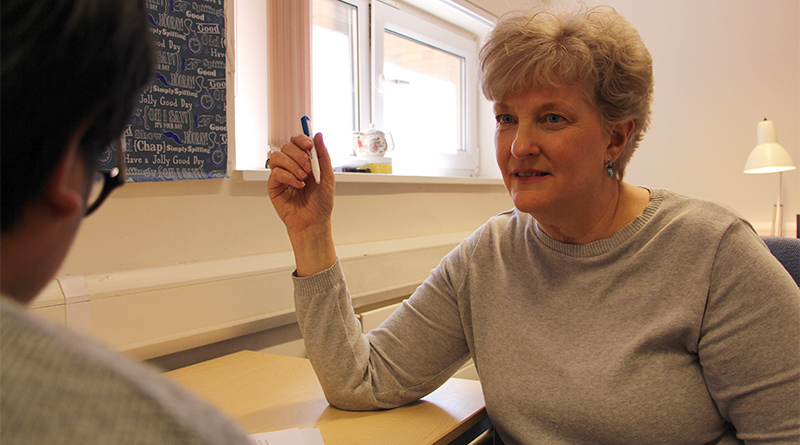On Fellowship at JOMEC
The room is small and just above the post-graduate kitchen, where the international students keep the microwaves busy. The spices of twenty different cultures rise up the stairs and every morning I must go down and crack the window. It always makes me smile.
I never know who will be coming in my door. Television personalities from Kenya and Kazakhstan, journalists from the Philippines and India, Chinese PR practitioners, an American writing an opera libretto, a Columbian music scholar, a girl from North Wales, struggling with her coursework…I’ve had them all walk in, nervously clutching their printed words on paper.
I always work on paper. We sit at a corner of the table and read out the words, one by one, slowly. Then we consider them. I often ask uncomfortable questions.
‘What does that mean?’
‘Why do you want to say this here?’
‘Can you prove this?’
I know my words are challenging, even confrontational, so I try to speak softly and smile. I talk to them about how references are their fellow soldiers in a fight. I talk to them about the impossibility of learning what prepositions work with what nouns – and tell them they need to read more English so they’ll ‘just know’. I draw a river and show how structure leads a reader to and through a discourse. We discuss paragraphing. We talk about the topic of their work – and I am often amazed by how intelligent they sound in person compared to how unintelligently their work reads.
And all the while, we are going through the words, one by one.
The writing gets better, but the page is full of ink. The student looks fearful, as if all that ink means that they have failed. I’m not a good enough writers, the student thinks. I can see the fear in their face.
So, I tell them about my own and my author friends’ writing…how many times we revise. I confess I had to do a remedial English class at university. I show them ‘Poems in Process’ from the back of my old Norton’s Anthology. If Shelley and Tennyson didn’t get it right without covering their pages with ink, why does the student expect any different? Did the student think they were better writers than the poets buried in Westminster Abbey?
The student becomes happier. Freed from the fear of their failure, they relax. We start to giggle and laugh. Without the blinding anxiety, they begin to be able to look closer at their work.
Maybe the next session, or the one after that, or the one after that, the miracle will happen. The student will tell me what needs to change and I will hand them the pen. Sometimes, they are so engaged in editing their work, they don’t even realise it’s happened. They go on, revising one paragraph and then another.
That’s when I say, ‘You don’t need me anymore. You can edit your work yourself.’
They often look stunned. Sometimes they argue. ‘Just try it,’ I say. ‘You can always come back if you can’t do it.’ They never come back…except to tell me, ‘I got a first!’, or ‘He gave me a 2.1!’, or ‘I passed it!’. I get flowers and chocolates…but that’s not my reward. Even my lovely bursary from the Royal Literary Foundation isn’t my reward. My reward is knowing that another young person has developed a strong textual voice – that another young person will be able to make themselves ‘heard’ in our increasingly textual world.
Eloquence is a mentored skill – like golf or dance or enlightenment. You don’t just need a teacher, you need a method of learning. The paper, the pen, the corner of the table; it’s a very cheap and portable way of mentoring. Many of the first people I helped are editors now. They’ve told me they say to their young writers, ‘Let’s print this out and look at it together.’
In China, in Kenya, in Columbia and Kazakhstan, in languages I do not know and may never hear, people are drawing a river on the back of a sheet of paper and explaining that the reader is on the other side. The little room up the stairs, over the smelly little kitchen, has gone all around the world.
 Mimi Thebo was the Royal Literary Fellow for Cardiff University from 2015 to 2017.
Mimi Thebo was the Royal Literary Fellow for Cardiff University from 2015 to 2017.
Mimi writes for children and teens. Her work has been translated into twelve languages, adapted for a BAFTA-winning BBC film, illustrated in light and signed for deaf children by ITV. Born in the USA, she is based in SouthWest England, where she is Senior Lecturer in Creative Writing at Bath Spa University. You can find Mimi on Twitter and mimithebo.net

